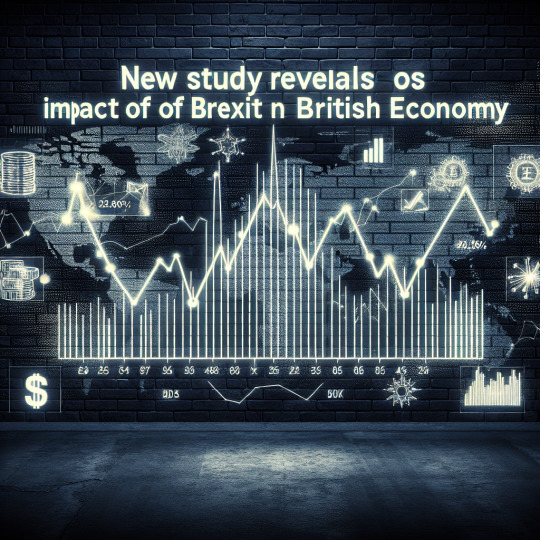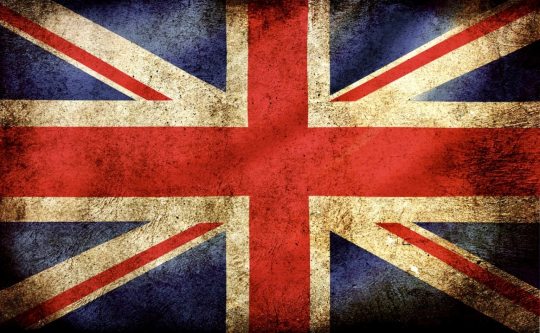#Impact of Brexit
Explore tagged Tumblr posts
Text
I must say I'm not enjoying living through a historically significant let alone technologically and politically significant time period, particularly while at uni. What do you mean I have to wrap my head around living through it and write about it?
#ace is a mess#Uni shenanigans#covid brexit ai whats next? dont answer that theres already too much#i started uni during covid sat my gcses during the brexit vote#i had to do an assignment on the effects of brexit on spanish student living in scotland post brexit en espanol my 1st year of uni#i was studying psychology and sociology when covid first started so you know the social sciences were going ham about the impacts#ive switched to biomed now so covid still comes up obviously#but now ive got to address the role of ai in the future of medicine and 'digital pathology' and all this sht#babe im still trying to wrap my head around the fact that 2025 is a real year let alone one im living through what do you mean#having to find citation for lived experiences is crazy im meant to live in a cave or a hovel
3 notes
·
View notes
Text
really interesting interview with harry tanfield about the last-minute attempt that he and his brother and some friends are making to establish a continental team in britain. as it stands, with st. piran and trinity closing, there would be no registered uci continental teams left in the country.
he also talks about the (very) sad state of professional cycling in the uk and some of the challenges faced by conti-level teams and riders trying to get into the european racing scene.
also this article from cycling weekly gives a good overview:
#some really interesting points about the impacts of brexit on riders trying to race in europe when it comes to visas and such#they both raced for st piran this year but charlie also does track and was on the silver medal team pursuit team at the olympics this year
2 notes
·
View notes
Text
In the News: Fashion Industry's Battle with Returns, US Economic Trends, and Key Automotive Recalls
In the latest episode of our podcast, we delve into some of the most pressing issues affecting various industries today. From the fashion industry’s battle against high return rates to the shifting economic trends in the US and significant automotive recalls, we cover it all. Let’s explore these topics in greater detail. Ever wondered how the fashion industry is managing the challenges posed by…
#Auto Recalls#Brexit Lingering Impact#Chain Reaction Podcast Tony Hines#CMA#EU#Google#pfas#Regulations#Retail Returns#Supply Chains#UK News#US Economic Trends
2 notes
·
View notes
Text
read more....
#Community pharmacists#Drug tariff#Medicine availability#Medicine pricing review#UK medicine shortages#Health minister#Brexit impact#UK healthcare#Drug supply#Patient care#UK medicine shortages due to Brexit impact on patient care
0 notes
Text
The Impact of Brexit on UK Tech Investments

The UK’s departure from the European Union marked a turning point for the nation’s tech industry. Once a magnet for global investment, the post-Brexit landscape now poses new challenges and opportunities for UK tech startups and investors. Issues like regulatory divergence, talent shortages, and funding access are reshaping the way businesses operate. Understanding these changes is crucial for navigating the evolving tech ecosystem.
To explore how Brexit-related policies continue to influence investment, check out this in-depth article.
How Brexit Affects Tech Investment in the UK
1. Regulatory Uncertainty
Divergence from EU regulations creates uncertainty for data privacy, intellectual property, and fintech compliance.
UK tech firms now need to align with dual regulatory systems when operating in EU markets.
Delays and inconsistencies in policy clarity have made some international investors hesitant.
2. Access to Talent and Skilled Workforce
The end of free movement with the EU has restricted access to tech talent, particularly in AI, cybersecurity, and software development.
Visa constraints and increased administrative burdens impact hiring efficiency.
UK tech firms must now focus more on local upskilling and remote hiring strategies.
3. Disruption in Funding & Investment Flows
Several EU-funded programs and VC networks are no longer accessible to UK-based startups.
There’s a growing reliance on domestic and US-based investors to fill the gap.
Startups face increased competition for grants, venture capital, and R&D funding.
4. Cross-Border Trade Barriers
Tech hardware exports and imports are affected by new tariffs and customs procedures.
Delays in cross-border logistics increase supply chain costs for UK tech companies.
Opportunities Emerging from Brexit
1. Independent Regulatory Frameworks
The UK can now customize its digital and data protection laws to encourage innovation.
There’s potential for pro-business tax reforms and funding incentives tailored for tech startups.
2. Strengthening Global Trade Relationships
Post-Brexit trade deals open the door to non-EU partnerships in North America, Asia, and Africa.
UK tech firms are diversifying markets to reduce reliance on the European bloc.
3. Boost in Domestic Innovation
Government initiatives like Innovate UK aim to support homegrown startups.
Investment in AI, green tech, and quantum computing is being prioritized to boost local capacity.
Tej Kohli’s Take on UK Tech and Brexit
Tech entrepreneur Tej Kohli emphasizes that while Brexit introduced barriers, it also presents an opportunity to reshape the UK as a sovereign tech powerhouse. His key insights include:
Policy alignment with innovation goals is vital to keep the UK globally competitive.
Investing in UK-led R&D and technology is essential for long-term resilience.
The UK must strengthen talent pipelines and offer incentives to attract top-tier tech professionals.
Conclusion
Brexit’s impact on UK tech investments is multi-dimensional—posing risks while also revealing paths to innovation and independence. For the UK to remain a leading tech hub, it must embrace policy reforms, international partnerships, and talent development. As Tej Kohli and other thought leaders suggest, the post-Brexit era offers a unique chance to rebuild the UK’s tech narrative with agility and ambition.
#UK Tech#Tej Kohli#Brexit Impact#Tech Investment#Startups#Innovation#Tech Policy#Entrepreneurship#Fintech#Talent Shortage#Global Trade
0 notes
Text
Brexit and its effects on the property market
If ever there was a time when that much over used expression was applicable, that time is now ‘ Keep Calm and Carry On’, it really is the best advice to be given over the next few months.
The result of the historic referendum on the UK’s continued membership of the European Union is in and everyone now knows. As an immediate result, the Government, economy and currency have all been in turmoil, which will obviously have a knock on impact on the property markets, but Britain now has a mandate to reassert itself in global markets and renegotiate relations with Europe on its own terms.
So how will this affect the property market?
Some uncertainty is likely to slow the property market for a while, however, the ‘must movers’ will still move in line with their personal circumstances – upsizing, downsizing, relocating for work purposes or moving for schools, but in contrast, many investors and less committed buyers may sit tight to see the economic and social impact of the announcement.
The ‘wait and see’ period could lead to some price adjustments; hopefully the Government will act swiftly to avoid the property market becoming stagnant which would have a knock-on impact on the economy.
Our hope is, that whoever succeeds David Cameron will appoint a chancellor who will temper the higher stamp duty levels which have curtailed demand across the capital by up to 50 per cent and which in turn is filtering out to the south east of England.
When the new prime minister takes charge and appoints a new chancellor, the present draconian stamp duty rates could be reduced somewhat to encourage more activity in the market place.
The pound may fall, against other major currencies and whilst this may only be in the short term, it does make the UK even more attractive to overseas investors.
Many global investors will take advantage of this, just as they did in the immediate aftermath of the last financial crisis. It is also likely that major multi-national employers will wait to see how the economy pans out before making radical changes. If so, we could expect a boost to lettings markets as more overseas employees wait to see what their prospects hold before buying a home here.
When currency rates do stabilise and confidence returns to the market, the clearing economic outlook should present a great opportunity for those bold enough to seize it. We understand many buyers, sellers, landlords, tenants and investors may still have questions about where this result leaves residential property markets in our area.
At Robert Leech our experienced and dedicated professionals are always here to assist in any way we can, so if you have any property related queries please do not hesitate to contact us.
Content source: https://www.robertleech.com/brexit-and-its-effects-on-the-property-market/
#Brexit Property Market Impact#UK Real Estate Brexit Effects#Brexit and Property Prices#Post-Brexit Housing Market Trends#Property Investment After Brexit
0 notes
Text
How Brexit 2.0 is Reshaping EU Immigration Policies for Non-EU Citizens
Brexit has had a profound impact on the relationship between the United Kingdom and the European Union, but its ripple effects extend far beyond the UK’s borders. As the UK finalized its exit from the EU, a second wave of changes—commonly referred to as “Brexit 2.0″—is now reshaping the immigration landscape, particularly for non-EU citizens. These new developments are causing shifts in how EU…
#Brexit 2.0#Brexit impact on immigration#EU Blue Card#EU immigration policies#work visas post-Brexit
0 notes
Text
#brexit#indian economy#financial markets in india#financial markets in london#london impact on India#financial consultant
0 notes
Text
The Impact of Brexit and Covid-19 on the Book Industry
When I had my first book published in January 2020 it was the right place but the wrong time to publish. I couldn't have foreseen, no one in the publishing or writing industry could have foreseen the car crash that was waiting to happen.
Brexit and Covid-19
This blog makes for sombre reading, but I will try to do a break-down of the impact of Brexit and Covid-19 on the book industry, highlighting how these events might have affected your publishing experience.
As a result of Brexit and Covid-19, publishing anything from 2020 onwards has met with significant upheaval, affecting the book industry and other industries. Publishers and authors alike would eventually come to understand why – as an author, I include myself here. Brexit
Anxiety and uncertainty
The prolonged and complex Brexit negotiations created a sense of uncertainty, causing anxiety and stress among the UK population, particularly among those who were directly affected by the changes.
Fear of the unknown
The lack of clarity on post-Brexit arrangements led to concerns about potential economic instability, job security, and access to healthcare, which contributed to feelings of unease and anxiety.
Sense of disconnection
The weakening of ties with the EU has contributed to a sense of disconnection from European friends and family, especially for those who had built strong relationships across its borders. We now know small businesses have particularly been hard-hit.
Economic Uncertainty
Consumer Confidence
Brexit created economic uncertainty, which has led to reduced consumer spending. People have been more cautious with discretionary purchases, including books.
Currency Fluctuations
The value of the British pound fluctuated considerably, affecting the cost of importing and exporting books. This has impacted pricing and profitability for UK publishers and authors. Regulatory Changes
Trade Barriers
New trade barriers and tariffs introduced complexities in the distribution of books between the UK and the EU. This affected supply chains, making it more challenging to get books to international markets efficiently.
Intellectual Property
Changes in IP law and licensing agreements between the UK and the EU created additional hurdles for publishers, delaying the release of new titles and complicating rights sales. Market Adjustments
Industry Shifts
Publishers had to adapt to the new regulatory environment, diverting resources away from marketing and promotion of new authors.
Focus Shift
Some publishers might have shifted focus towards more established authors and safer bets in an uncertain market, making it harder for new authors to gain visibility.
Covid-19
Pandemic-induced stress and anxiety
The global pandemic has caused widespread stress, anxiety, and fear due to the rapid spread of the virus, lockdowns, and the uncertainty surrounding its impact on daily life.
Social isolation
Social distancing measures led to feelings of loneliness and disconnection from others, exacerbating mental health concerns like depression and anxiety disorders.
Fear of contagion
The risk of contracting Covid-19 has created a sense of hyper-vigilance, causing people to feel anxious about their own health and the health of those around them. Personally, Covid-19 (the pandemic) caused my anxiety to worsen, leaving me with a permanent sense of foreboding and in a continued state of panic.
Disruption to Retail
Bookstore Closures
At the start of Covid-19 with physical bookstores closed and operating at reduced capacity during lockdowns, primary sales for many books were severely disrupted.
Shift to E-commerce
While there was a significant shift to online book sales, not all authors and publishers were ready for the transition. New independent authors have also struggled to stand out in the crowded online marketplace. Supply Chain Issues
Printing and Distribution
Lock-downs and social distancing measures disrupted printing and distribution, leading to delays in the release of new books and potential shortages.
Increased Costs and my books
The rising costs of materials and shipping have had a significant impact on the pricing and profitability of books. My third book, Survival: The Covid Years, was published in the UK, whereas my first two books were published in the EU. When it came to publishing my third book, my publishers relocated the printing and production to the UK in an effort to reduce costs and to optimise their operations. Changes in Consumer Behaviour
Reading Habits
The pandemic change people's reading habits, with some people reading more due to lockdowns and others less due to stress, anxiety and uncertainty. The types of books and genres people were interested in also shifted, which may not have aligned with what authors published. My books are all non-fiction and all deal with mental health. Four years into the pandemic and many people are still failing to go back to reading physical books, particularly books on mental health. Marketing and Promotion
Event Cancellations
Book launches, signings and literary festivals were cancelled or were moved online. This affected the visibility and promotional opportunities for new releases.
Digital Marketing
There was an increased reliance on digital marketing, but cutting through the noise required significant investment, which will have been a challenge for new authors. (Source: onlinelibrarywileycom)
Conclusion
While Brexit has introduced regulatory and logistical challenges, Covid-19 has accelerated digital transformation and changed consumer behaviour, forcing the book industry to adapt to a rapidly changing environment and that's been difficult.
Both Brexit and COVID-19 have had significant impacts on our mental health and relationships with the European Union. While Brexit created uncertainty and disconnection, Covid-19 has exacerbated these effects by adding another layer of stress and anxiety.
However, with the right Government in place, these challenges may also present opportunities for strengthening relationships with the EU, therefore fostering greater international co-operation in the face of Brexit. It remains to be seen, however, whether Labour, the new incumbent party in the UK take up these challenges to mend the UK's relationship with the EU.
If you're interested and fancy grabbing copies of any of my books that deal with mental health, please go to the following link https://www.thecpdiary.com/my-books/
For more relatable, inspirational, lifestyle blogs, please check out my site https://www.thecpdiary.com
#thecpdiary#blog#Impact#Brexit#Covid19#Book#industry#Publishing#nonfiction#books#self help#mindset#personal growth#healthandwellbeing#mentalhealth
0 notes
Text

New Study Reveals Impact of Brexit on British EconomyBrexit, the United Kingdom's withdrawal from the European Union, has been a topic of heated debate a... https://www.meoun.uk/new-study-reveals-impact-of-brexit-on-british-economy/?feed_id=9386&_unique_id=6651bcdbb4993
0 notes
Text
Formal apology on behalf of the United Kingdom to the people of the European Union regarding Brexit and a gesture of hospitality
Dear People of the European Union, I am writing this letter for and on behalf of the United Kingdom to extend our heartfelt apologies for the impact of Brexit on the people of the European Union, and for the personal insult, distress and uncertainty it has caused. I didn’t vote for Brexit, I voted to remain and I have had to learn to respect and accept the outcome of the referendum and it’s…

View On WordPress
#Apology#art#article 50#Austria#backstop#belgium#Border#border control#brexit#brexit deal#brexit impact#brexit party#brexit process#brexit vote#Bulgaria#citizens rights#conservatives#customs arrangements#customs checks#customs union#Cyprus#czech republic#Denmark#divorce bill#economic impact#economy#english channel#Estonia#EU#european union
1 note
·
View note
Text
#britons abroad#uk elections#overseas voters#electoral franchise#voting eligibility#voter registration#online registration#political donations#election law change#voting rights#parliament approval#15-year rule#law implementation#voter rolls#historical change#1928 voting rights#1969 voting age#online voting#Brexit impact#2019 election#3.5 million voters#2016 EU referendum#political parties#conservative party#labour party#first-past-the-post system#individual constituencies#voter registration process#address verification#Electoral Commission
0 notes
Text
Ex-GAA president Sean Kelly reveals ‘unexpected’ Brexit impact as it’s made him ‘miss the Brits’ in European Parliament | 0K510G1 | 2024-01-04 08:08:02 | January 04, 2024 at 09:08AM
Ex-GAA president Sean Kelly reveals ‘unexpected’ Brexit impact as it’s made him ‘miss the Brits’ in European Parliament | 0K510G1 | 2024-01-04 08:08:02 Read More … Check full articles at Source: ALPHA MAG

View On WordPress
#Ex-GAA president Sean Kelly reveals ‘unexpected’ Brexit impact as it’s made him ‘miss the Brits’ in European Parliament | 0K510G1 | 2024-01-#Politics#ShowBiz#Sport#Tech#UK#US#World
0 notes
Text
Understanding UK’s Economic Policies

The UK’s economic policies play a crucial role in shaping the country’s financial stability, business environment, and investment climate. From taxation and trade policies to monetary regulations, these policies directly impact business owners, investors, and consumers. Understanding how these frameworks evolve helps businesses and individuals make informed financial decisions.
For expert insights on the UK's economic strategies, check out this article.
Key Components of UK’s Economic Policies
1. Fiscal Policy – Government Spending & Taxation
The UK government manages economic growth through public spending and taxation policies.
Changes in corporate tax rates, VAT, and personal income tax affect businesses and individual earnings.
Recent R&D tax incentives aim to boost innovation and tech-driven enterprises.
2. Monetary Policy – Interest Rates & Inflation Control
The Bank of England regulates monetary policy by adjusting interest rates to control inflation.
Businesses must monitor inflation trends, borrowing costs, and currency fluctuations.
Investors assess monetary policies to predict market movements and investment opportunities.
3. Trade & Investment Policies
Post-Brexit trade agreements have reshaped UK’s global trade relationships.
The government encourages foreign direct investment (FDI) through business-friendly policies.
The UK’s focus on tech startups and financial services strengthens its global competitiveness.
How Economic Policies Affect Businesses
1. Impact on Startup Growth & Investment
Tax relief programs like SEIS and EIS attract investors to early-stage startups.
Government-backed small business loans provide funding support for entrepreneurs.
Policy shifts in corporate tax rates and VAT regulations influence business expansion plans.
2. Influence on Employment & Labor Markets
Employment laws, including minimum wage increases and worker rights regulations, affect hiring strategies.
Immigration policies impact talent acquisition in tech, AI, and finance sectors.
Companies must adapt to changing labor laws to ensure compliance.
3. Consumer Spending & Market Trends
Interest rate adjustments influence consumer spending habits and business sales.
Policies on public sector investments affect infrastructure and service industry demand.
Businesses must analyze economic indicators to anticipate market fluctuations.
Challenges & Opportunities in UK’s Economic Policies
1. Brexit-Related Policy Uncertainties
New trade tariffs and import/export regulations pose challenges for UK businesses.
Companies must restructure supply chains to align with post-Brexit agreements.
2. Balancing Inflation & Economic Growth
The Bank of England’s inflation control measures impact business borrowing costs.
Entrepreneurs must optimize financial strategies to mitigate inflationary pressures.
3. Sustainability & Green Economy Initiatives
The UK government promotes green energy investments and carbon reduction targets.
Companies investing in sustainability practices can benefit from policy-driven incentives.
Tej Kohli’s Perspective on UK Economic Policies
Investor and entrepreneur Tej Kohli highlights that pro-business policies drive innovation and economic resilience. His insights include:
Lower corporate taxes encourage investment and startup growth.
Government-backed tech funding accelerates AI, fintech, and biotech advancements.
Flexible trade agreements will strengthen the UK’s economic position in global markets.
Conclusion
UK’s economic policies shape the nation’s financial stability, business expansion, and investment climate. Entrepreneurs, investors, and businesses must stay informed about tax regulations, monetary policies, and market trends to remain competitive in an evolving economy.
#UK Economic Policies#Tej Kohli#Business Growth Strategies#Investment Insights#Tax Regulations in the UK#Monetary Policy and Inflation#Brexit Impact on Trade#Startup Funding in the UK#Foreign Direct Investment#Corporate Tax and Business Compliance#Economic Trends and Market Analysis
0 notes
Note
Scottish Independence and Brexit are totally the same thing. I mean, one is a nation trying to break free from a historically oppressive colonial empire, and the other is that same historically oppressive colonial empire ditching a mutually-beneficial alliance that they helped create. Totally the same.
Totally get where your coming from but I'm going to swerve it and avoid writing a small essay while insisting that Scotland was very much a key player in that historically oppressive colonial empire.
Those arguments should be modernised - They are two distinct issues because there's a huge democratic deficit in the UK that impacts devolved nations. While that same democratic deficit did not exist between the UK and EU as the EU is made up of independent member countries.
193 notes
·
View notes
